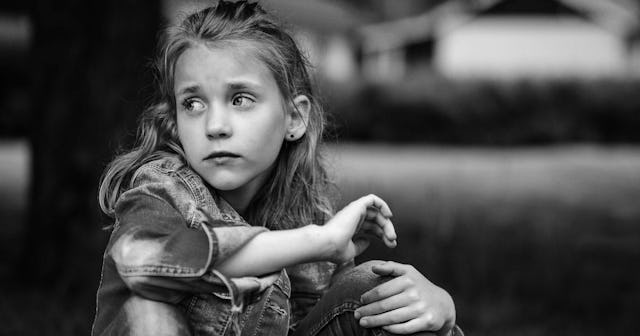How To Be A Hero To A Grieving Child – Cape Not Required

As a mom to two young boys, I am frequently reminded of America’s fascination with superheroes. These movies seem to be on an endless loop in our house and in between the action-packed plotlines, we’ve had some powerful conversations about loss, unresolved grief and the importance of community support.
The irony is that from Batman to Daredevil to Spider-Man, childhood trauma – whether it’s the untimely death of a loved one or a disfiguring accident – frequently serves as the catalyst for heroic action. In most of these films, an experience with loss and tragedy consumes these heroes and fuels their epic efforts to defend humanity. Unfortunately, the narrative for real-life grieving children is not so simple.
Pixabay
This is the reality of childhood grief: one in 14 children will experience the death of a parent or sibling before they reach the age of 18. Over 4.9 million youth are bereaved, and the number more than doubles by age 25, to 12.8 million, according to data from the Childhood Bereavement Estimation Model. While fictive superheroes fight villains on behalf of society, grieving children who have no such superpowers, or even, frequently, much support, often battle depression, anxiety, loneliness and problems at school.
Grief can powerfully affect children’s psychological, emotional and social wellbeing – I know this all too well, having lost my father as a young adult. Too often the people in our lives don’t know what to say or how to help. In fact, in a recent survey, 65 percent of Americans who had lost a parent before age 20 said that after their parent died, they felt like there was no one they could talk to.
Kat J/Unsplash
But there is someone they can talk to – you. My experience first as a grieving child, second as a parent, and third as the leader of the New York Life Foundation’s efforts in the childhood grief space has taught me that you don’t have to be a superhero to help a grieving child.
Small gestures matter, and our own research has shown that grieving children just want to be included and engaged … and that relatives, friends, neighbors, classmates and teachers all have a crucial role to play in helping children regain some equilibrium. We also know that if we provide support, grieving children can be incredibly resilient. But the outcomes can be dire when we don’t.
Cassidy Kelley/Unsplash
The issue of childhood grief is so pervasive that a national movement, marked by a day of recognition – Children’s Grief Awareness Day – was established in 2008 and is observed throughout the month of November. This year’s Children’s Grief Awareness Day falls on November 21st, and the National Alliance for Grieving Children with the New York Life Foundation has marked the month with a new campaign, aptly centered on “How to be an Everyday Hero to a Grieving Child.” The campaign offers tips and resources to connect with grieving children, help them understand and cope with their feelings of grief, reduce the isolation associated with loss and begin to build a foundation of resiliency.
Kat Jayne/Pexels
Nobody – not even a superhero – is immune to grief, but the support grieving children receive makes a difference in how they cope with loss. If we choose to, each of us can be a hero to a grieving child; not only on Children’s Grief Awareness Day, but every day.
For Children’s Grief Awareness Day resources and materials, please visit www.achildingrief.com.
This article was originally published on